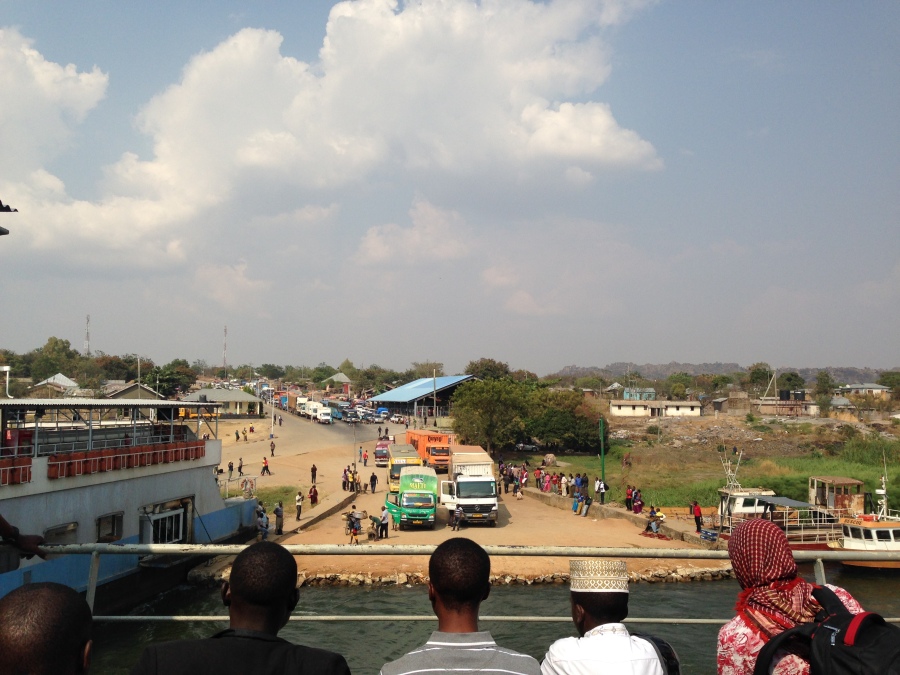Things have been busy, I’m trying to finish my project at MikonoYetu and hand off what I can’t complete to Steph in a semi-comprehensive way. Therefore, I have not had the time or energy to write for pleasure as much. I woke up this morning to an email from my mom telling me that I haven’t blogged in a while and she misses it. And because we all secretly live to make our mothers smile, I’m taking a short break from sifting through literature about the UN Conferences on Women and reading over interview notes to record what I’ve been doing and thinking lately.
We finished interviews on Saturday, first heading to Lydia’s place to meet an interviewee there and then went with Maimuna and her son to a village about an hour’s drive away. The fishing village was remote, beautiful, and I got the feeling many of the kids we encountered had never seen someone with skin so bright as mine (just so we’re clear, my skin is really white and tends to shine in the sunlight. The Irish life chose me). The first interview in the village went well, although Steph and I had to be inventive when it came to the set up. That marked the tenth interview, but Maimuna said that there was a community leader that she was connected to in the village that she wanted interviewed. I was all for it; we could definitely use some more variety in the case studies and I definitely wanted to hear her story. Unfortunately, she was in a street meeting that day, and if I know anything about Tanzanian meetings, time isn’t really a factor. By street meeting I mean just that; everyone was assembled by the main road in the village, sitting on the ground or standing, listening to anything anyone had to say. We drove past it a few times, and it was such an awesome, potent symbol of community. While we waited, Maimuna brought us all to a beach where villagers were fishing, drying sardines in the sun, and selling their catches. Maimuna (a master bargainer, we discovered) bought a huge bag of sardines, which I’m positive made me smell like fish for the rest of the day. Finally, at around 4:00 pm (we arrived at the village around noon), the last interviewee showed up. Eleven interviews completed, we went home and I managed to feel a small sense of accomplishment.

Jane, our beloved taxi driver, took us to a festival for Nane Nane (the eighth of the eighth, a Tanzanian peasant holiday) on Sunday, where we walked around, suffered through a couple marriage proposals (more common that you’d think), stopped in on the MikonoYetu tent promoting clean, environmentally- and health-friendly stoves, and enjoyed Jane’s company. We were then invited to Jane’s home for dinner. She made us chips (fries) and chicken, which we’ve come to discover are Tanzanian staples (I’ve eaten more fries that I’d like to say during my summer here, and have gained weight). It was absolutely amazing spending time with Jane, seeing her house, helping her make dinner, and taking pictures with her in front of her house. She’s such a vibrant woman, I will miss her so much it hurts a little.

I miss cooking for myself, vegetables, baked goods, family and friends, and being able to walk down a street without every single person around staring at me. I miss independence. But leaving this place is going to be the hardest thing I’ve ever done.
Tomorrow we go to EBLI and MikonoYetu for the last time. Nuri has to finish up interviews, discuss some things with Bernard Makachia, and say goodbye. I’ll miss everyone at EBLI, and philosophical conversations with Bernard. We had quite the debate about love and equality during lunch yesterday. I’m going to be a mess when we go to MikonoYetu for lunch and to say our goodbyes to the staff. I’m a bit of a mess even thinking about it. They have all been so wonderful, giving, welcoming, and friendly to us interns this summer. A very large part of me doesn’t want to leave this beautiful, hospitable space where I have found friendships, love, warmth, forgiveness, and have grown beyond measure. I’ve already warned Nuri that I’ll be an emotional wreck the entire plane ride to Dar, to which she graciously answered that she always has a shoulder for me to cry on.
Before I leave, I need to finish writing up the case studies and do what I can to write up the majority of the context for a booklet Maimuna wants to showcase the case studies. Reading what these women have gone through has made me so angry, but seeing where these women are now gives hope. Every single one of the interviewees said at the end that programs like MikonoYetu and Kivulini Women’s Rights Organization, the organization that Maimuna originally directed, need to continue helping more women. Women need to know their rights and be invested in. One of the mamas said that women need to be given training, but that youth also need to be invested in. These women have been through hell and back, are weathered mothers and community members, and know what they’re talking about. I have been honoured to come into contact with them, even if that contact has been limited by my lack of proficiency in Swahili. I wouldn’t trade those small interactions, or working on this important project, for the world.
So at this point, I don’t know what to think. When friends ask how I’m doing, I don’t know what to say. When my mom says she’s counting down the days, I don’t know how to respond. I have four days left in Mwanza, and then a short five days in Zanzibar for some vacation time before the 19-hour trek to Pearson Airport. Then I’ll burn through some literature about grassroots organizations and how they seek to solve implementation gaps in national legislature, try my best to plan coffee dates with friends who have much to tell me considering I’ve missed three months of their lives, and find a new job (wish me luck). I’ll start school again, finish my bachelor’s degree, see family, witness milestones. But I will always store a piece of Mwanza, Tanzania in my heart. I will miss this place very, very much.


























